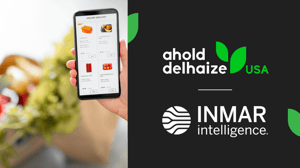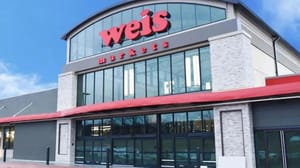Ahold Delhaize’s AIRLab to Explore Robotics
Partnership with Delft University of Technology will study innovations in retail and establish a test lab for robotic solutions. A newly launched partnership with Delft University of Technology will study innovations in retail and establish a test lab for robotic solutions.

Ahold Delhaize has embarked on a partnership with Delft University of Technology (TU Delft) in the Netherlands to expand its newly launched Artificial Intelligence for Retail Lab, or AIRLab, into robotics research.
The program with TU Delft will establish a test lab for developing what Ahold Delhaize calls “state-of-the-art innovations in the retail industry” to explore how robotics can be deployed in a retail setting, including how robotic grippers can handle delicate items such as fruits and vegetables and how to improve image-recognition of products and packaging.
Ahold Delhaize established AIRLab earlier this year in partnership with the Innovation Center for Artificial Intelligence (ICAI), a public-private science lab in Amsterdam. The lab is putting scientists to work. They are studying using AI in algorithms that can be used to make product recommendations to consumers, as well as using AI technology for managing goods flow by taking into account local weather conditions to improve availability.
By expanding its focus to robotics, AIRLab Delft will further drive innovations for daily business while building more knowledge of the intersection among retail, AI and robotics, the company said.
“At AIRLab Delft, scientists will study how employees can teach their robots to do repetitive tasks, or develop methods to optimize the motion and coordination of mobile robots and of delivery vehicles,” Martijn Wisse, director of the TU Delft Robotics Institute and supervisor of AIRLab Delft, said in a release. “This collaboration with Ahold Delhaize allows us to solve real-world challenges by focusing on fundamental issues in robotics, such as how to learn and safely execute tasks in the context of uncertainty, how to safely navigate and interact in environments shared with humans, and how to efficiently and effectively plan the routes of fleets of last-mile delivery. We are very excited.”
TU Delft said its researchers are working on a new generation of robots that they are teaching to deal with the unpredictability of the “real world.” Having robots and humans collaborate effectively and safely in an unstructured environment involves major challenges. These robots will bring together many different scientific and academic disciplines, including mechatronics, control and artificial intelligence, as well as human-machine interaction, ethics and safety technology.
“The rapid advancements in AI and robotics provide us with significant opportunities to make everyday shopping even easier for our customers and develop new solutions for our warehouses and last-mile delivery,” Frans Muller, CEO of Ahold Delhaize, said in a statement. “Working together with academic partners such as TU Delft will enable Ahold Delhaize and AIRLab to shape a technology-driven world in a responsible way. It helps us become a frontrunner in AI research and development for retail and ultimately build capabilities that are scalable for the group.”
About the Author
You May Also Like






